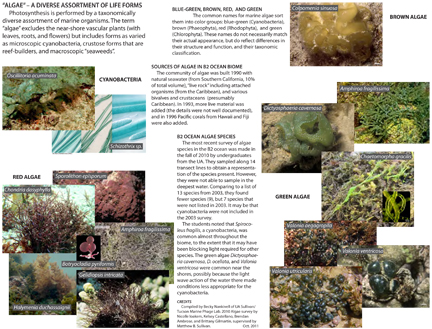The Sullivan Lab is committed to communicating effectively about our research not only to the scientific community, but also to the public and to the students that will become tomorrow’s researchers and decision-makers.
COSI Science Festival, May 4-7, 2022
Several grad students and postdocs—Marissa, Alfonso, Adjie, Courtney, Kim and Emily— worked together to produce interactive activities aimed at children during the COSI Science Festival (official page). Activities included making t-shirts, and assembly virus particles using common hand-crafting materials.

COSI: The Smallest Creatures in the Oceans
Consuelo (Postdoctoral Research Associate) engages the 1st graders at COSI’s summer children’s camp in hands-on learning about the smallest creatures in the oceans, those that we cannot see with our bare eyes. Children learned about the shapes and sizes of ocean bacteria and viruses, and even got to view a few through the microscope. They also learned about why these sea creatures are important for the ocean and maintaining life on earth, then created and shared their own viruses in the activity session. July 2016.
Discovery Nights: Ocean Night
To engage the public in ocean science, Sullivan Lab members host a marine phage table at Biosphere 2’s Discovery Nights.
Saturday, October 18, 2014.

Ocean 180 Video Challenge
Innocence by Viral Tagging
Created by Ann Gregory and Julio Cesar Ignacio Espinoza
The Micro B3 Project
Contributed six cyanophage micrographs to Micro B3, a European Union project, Biodiversity banner
Biosphere 2 Exhibit
The Tucson Marine Phage Lab (Sullivan Lab at Univ. of Arizona), in collaboration with Tara Oceans and Biosphere 2, showcased the role of marine viruses in global carbon cycling at the Biosphere 2 Visitor’s Center from September 2010 to September 2011.
Biosphere 2 Ocean Guides
The guides below were created by Dr. Sullivan for tour groups to identify marine life in the Biosphere 2 ocean.
Algae Guide

Fish Guide
B2 Fish Gang
Guided by Dr. Sullivan, undergraduate students surveyed the overall ecology and fish populations of the Biosphere 2 ocean.
Check out their Project Blog
Bacteria Get Viruses, too!
Marine cyanobacteria and cyanophage were the topic of a full-page feature in the May 2011 Bear Essential News for Kids, a free tabloid paper by and for elementary and middle school age kids in southern Arizona.
Middle and High School Oceans Curriculum
Oceans Curriculum Materials
The Tucson Marine Phage Lab and local teachers (Elena Martin, Tucson High Magnet School; Victoria Milani, retired) developed middle school and high school curriculum. The middle school lessons were used at Booth Fickett, La Cima, Doolen Middle Schools, and the high school lessons at Tucson High.
Ocean viruses: From isolates to genome
High School Lab Course Materials
In collaboration with award-winning Tucson High teacher Margaret Wilch, a laboratory course module, “Ocean viruses: From isolates to genomes”, has been taught as part of Ms. Wilch’s Biotechnology course.










